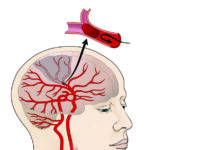A team of researchers from the National University of Singapore (NUS) is pioneering a novel magnetic therapy – delivered using the OncoFTX System – that serves as an effective companion therapy to chemotherapy to enhance treatment outcome for breast cancer.
While chemotherapy is the mainstream treatment for breast cancer, more than 50% of women undergoing chemotherapy will experience at least one chemotherapy-related adverse side effect.
“Our magnetic technology stimulates cellular oxygen respiration to produce energy. In certain cancers with elevated respiratory rates – such as breast tumours – the magnetic pulses cause the cancer cells to ‘hyperventilate’ and die. Fortunately, the healthy tissues near the cancer are able to tolerate the increased respiratory rate, without ill consequences. Therefore, the OncoFTX System is more selective for cancer than conventional chemotherapy or radiotherapy. Importantly, this therapy is localised, non-invasive and painless,” explained Associate Professor Alfredo Franco-Obregón who leads the team comprising researchers from the NUS Institute for Health Innovation & Technology as well as Department of Surgery under the NUS Yong Loo Lin School of Medicine.
Each session of magnetic therapy involves exposing a breast tumour to a pulsed magnetic field at a strength of 3 milliTesla, for one hour. This field amplitude is about 50 times greater than the amplitude of the Earth’s magnetic field, but 1,000 times smaller than conventional magnetic resonance imaging. The imminent safety and efficacy trials will determine the best treatment frequency for breast cancer patients.
To further validate their findings, the research team plans to embark on a first-in-human safety trials. The one-year clinical trial is expected to involve about 30 breast cancer patients who will undergo the magnetic therapy in combination with chemotherapy.
The NUS team also plans to test the effectiveness of their magnetic therapy in other types of solid tumours – such as prostate cancer – with and without chemotherapy.
These research findings were published in the scientific journal Frontiers in Oncology recently.
























